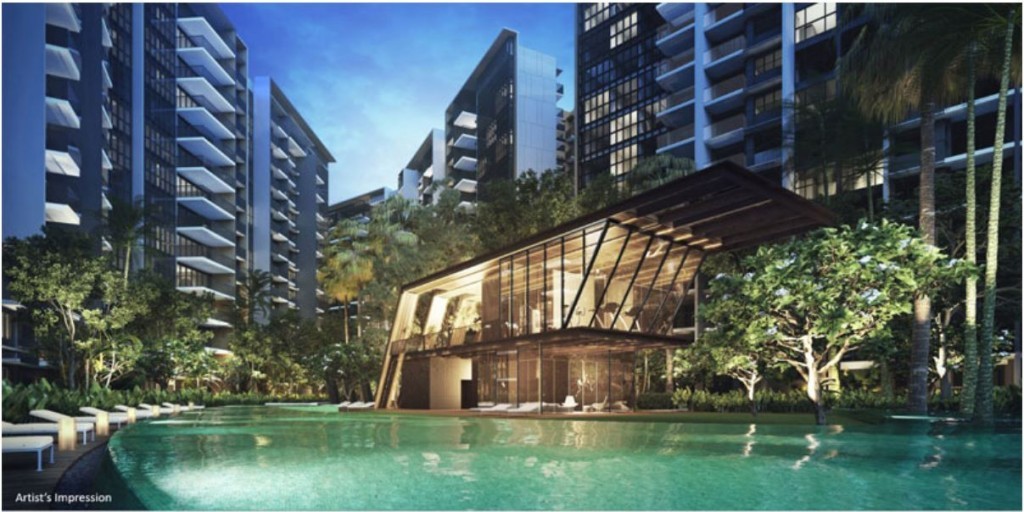Singapore Finance Minister Heng Swee Keat on 18 February unveiled a Budget aimed at building up resilience in the face of economic restructuring, an ageing population and income inequality. With that came new and extended schemes to help firms and workers; targeted help for the needy; and substantial spending to make healthcare more affordable particularly for the greying.
• Singapore Budget doubles down on restructuring
• Steering through changing tides
• Foreign workers quota cut for services sector
• Simplifying schemes for SMEs a key focus: industry watchers
• Fiscal planning: matching funding with project type
• Tighter tax rules on booze and other buys
• S$8b package unveiled for Merdeka Generation
Budget 2019: Experts predict fiscal fillip
Finance Minister Heng Swee Keat will arrive at Parliament House to deliver his fourth Budget speech, setting the tone for Singapore's spending in the coming year. The details are, of course, top secret. But Mr Heng has dropped plenty of hints over the past few weeks about what Singaporeans can expect. In his words, the Budget will have a "comprehensive agenda", focusing on topics such as security, economic transformation and the details of the multibillion-dollar Merdeka Generation Package. Analysts with an eye on Singapore's economic performance predict that Budget 2019 will be an expansionary one, with a projected surplus in government coffers for the 2018 financial year.
SMEs must plug into digital economy to spur Singapore's economy: Iswaran
It is "critical" for small and medium-sized enterprises (SMEs) to plug into the digital economy as it would make a noticeable impact on Singapore's growth, said Minister for Communications and Information S Iswaran. Speaking about the government's ongoing efforts to support businesses in the digital space, Mr Iswaran, who is also the Minister-in-charge of Trade Relations, said: "This is not just the larger enterprises but also for the smaller and medium-sized enterprises. That's critical because they really move the needle for us in terms of the economy, if they plug into the digital economy." Other government figures have previously urged businesses to take advantage of digital technology to raise productivity levels. SMEs are a key driver of Singapore's economy. According to the Department of Statistics, SMEs contribute to 65 per cent of Singapore's employment while in 2017, SMEs added a nominal value of S$196.8 billion, or 49 per cent, to the economy. SMEs are defined by the Department of Statistics as enterprises with operating receipts of not more than S$100 million or employment of not more than 200 workers.
Exams have been scrapped, and younger pupils are going through the school year test-free. Efforts to help children from disadvantaged homes level up have redoubled. More plans are afoot to further push students to "learn for life", as part of the Ministry of Education's efforts to move away from a narrow focus on grades, said Education Minister Ong Ye Kung. "It will be a significant thrust... and a multi-year effort which would significantly improve the education system," he said. The details will be announced during his ministry's debate on its spending plans following the Budget's delivery on 18 February. Mr Ong was one of three Cabinet ministers who spoke briefly on the Budget while out and about at separate community events. While they were tight-lipped on the Budget's details, all three ministers - Mr Ong, Trade and Industry Minister Chan Chun Sing and Communications and Information Minister S. Iswaran - raised the much-talked about Merdeka Generation Package as a highlight of this year's Budget, which will be delivered by Finance Minister Heng Swee Keat in Parliament at 3.30pm today.
Greater clarity expected for HIP and VERS
In his National Day Rally speech last year, Prime Minister Lee Hsien Loong announced HIP II, which will be launched in some 10 years to upgrade flats that are 60 to 70 years old. This will see them being upgraded for a second time during their 99-year lease. The existing HIP, which upgrades flats for the first time at the 30-year mark, will also be expanded to include housing blocks built up to 1997. Prior to this, it was offered to flats built up to 1986. Under VERS, residents in selected precincts will get to vote on whether to sell their ageing flats back to the government before the lease runs out. VERS would thus allow the government to redevelop these older towns if residents vote in favour of it. Analysts whom BT spoke to said that Budget 2019 could bring greater clarity regarding HIP and VERS, which in turn may help the HDB resale market. Improved flats may garner higher prices when sold, some pointed out.
Two schemes to help startups scale up and tap expert know-how
Enterprise Singapore will launch two programmes to help startups and smaller companies scale up and tap a pool of experts, said Minister for Finance Heng Swee Keat. The first programme, called Scale-up SG, will partner both the private and public sectors to work with high-growth local firms in order to build new capabilities, innovate and internationalise. The second, a two-year pilot initiative called the Innovation Agents programme, will connect firms with experts who can advise them on opportunities to innovate and commercialise their technology. Enterprise Singapore will identify individuals with deep expertise in technology, strong track records in growing businesses, and access to global industry networks, who will provide consultation on a one-to-one or group basis. The duration of engagement may vary from a few months to a year.
Singapore's move to introduce two new innovation centres in aquaculture and energy shows its growing emphasis on internationalising small and medium enterprises in sustainability-driven sectors, say industry watchers. In the Budget speech, Finance Minister Heng Swee Keat announced that Enterprise Singapore will launch two new Centres of Innovation (COIs): one for aquaculture at Temasek Polytechnic, and the other for energy at Nanyang Technological University. The aquaculture COI will support the growth and internationalisation of local aquaculture enterprises to improve food resilience in Singapore. The energy COI will focus on energy efficiency, renewable energy and electric mobility. The emphasis on aquaculture was welcomed by industry players, who say there are pain points where innovation is sorely needed.
Slowdown in final quarter of 2018 may set tone for this year
A year marked by global protectionist tensions ended on a sluggish note for the Singapore economy, which grew by 1.9 per cent year on year in the final quarter of 2018 - the weakest quarter of growth in three years. This was lower than the 2.4 per cent growth in the previous quarter and came in under the Government's own flash estimate of a 2.2 per cent expansion. MTI said the economy grew 3.2 per cent for all of last year, slowing from 3.9 per in 2017. MTI permanent secretary Loh Khum Yean said the external demand outlook has weakened slightly since November, with the United States, China and the euro zone economies forecasting moderate growth this year. At the same time, there is now the added threat of a sharper-than-expected slowdown in China and a worsening of its trade conflict with the US dragging down Singapore's economy. The Ministry of Trade and Industry (MTI) is maintaining its forecast range of 1.5 per cent to 3.5 per cent for the year ahead, but now expects growth to come in below the mid-point.
Singapore's trade crosses S$1 trillion for first time in 4 years
Total trade jumped 9.2 per cent from a year ago to S$1.1 trillion, after an 11.1 per cent increase in 2017, according to figures released by Enterprise Singapore. The last time Singapore's trade crossed S$1 trillion was in 2014. Singapore's total trade was S$967 billion in 2017 and S$870 billion in 2016. Both oil and non-oil trade contributed to total merchandise trade growth in 2018. Oil domestic shipments increased 17.1 per cent, easing from a 33.4 per cent jump in 2017. Non-oil exports rose 6.5 per cent in 2018, comparable to the 6.8 per cent growth in the previous year. The NODX growth slowed from 8.8 per cent in 2017 to 4.2 per cent last year. In the final quarter of 2018, the NODX dipped 1.1 per cent following a 8 per cent growth in the third quarter. For the full year, the electronic NODX fell 5.5 per cent, against an 8 per cent rise in 2017. The decline was outweighed by a bigger increase in the non-electronic NODX, which grew 8.2 per cent - though this was a moderation from the 9.2 per cent jump in 2017. In its report card on Singapore's latest annual trade performance, Enterprise Singapore also disclosed that it is maintaining its earlier forecast of zero to 2 per cent growth for total trade and non-oil domestic growth this year.
Singapore's trade sector began the year on a whimper with non-oil domestic exports (Nodx) for last month sliding by a worse-than-expected 10.1 per cent from a year ago. This is the biggest contraction since exports slumped 12 per cent in October 2016. Analysts polled by Bloomberg were expecting a decline, but of 3.5 per cent, given the high base effect of January last year, when exports rose 13 per cent. The drop last month was also the third straight month of decline after an 8.5 per cent fall in December and 2.8 per cent decrease in November, Enterprise Singapore figures showed.
WSQ training helped raise wages for workers: study
After taking into account selection bias, the study by the Ministry of Trade and Industry (MTI) and SkillsFuture Singapore (SSG) found that the real wages of workers who went for WSQ training were 0.8 per cent higher on average than their counterparts in a control group. Trainees who are in the course of attaining WSQ full qualifications experienced a real wage premium of 5.8 per cent on average in the year following the training. Unemployed individuals who attended a WSQ training module were 3.5 percentage points more likely than those in the control group to be employed in the year after training. Similarly, non-employed trainees working towards a WSQ full qualification (comprising a series of training modules) were 2.6 percentage points more likely than the control group to have found jobs a year after. The WSQ is a national credential system that trains, develops, assesses and certifies skills for the Singapore workforce, in support of the SkillsFuture movement.
Services productivity lagging wage growth
And the costs could keep going up this year, researchers from the Ministry of Trade and Industry (MTI) economics division have now said. The trend was felt in services industries - rather than in manufacturing - as productivity was higher in Singapore's external-facing sectors, according to official reports. Overall unit labour costs here inched up by 0.4 per cent last year, lifted by a 1.7 per cent rise in services, despite a 3.5 per cent drop in factories' manpower expenses. This tracked a broad pattern over the past five years: Businesses' unit labour cost rose by 1.5 per cent a year on average from 2013 to 2018, with manufacturing the only sector to see a decline, to the tune of 1.9 per cent. Overall unit labour cost is likely to keep facing upward pressure in 2019, said MTI economist Geraldine Lim. Manufacturing clocked the biggest productivity gains, at 9.8 per cent, while accommodation services was up by 6.3 per cent and finance and insurance grew by 4.2 per cent. Business costs this year are expected to be pushed up by both wage growth and higher office rents, although utilities costs - a key contributor in manufacturing expenses - could go down as oil prices drop.
Tighter foreign worker rules an effort at making labour market sustainable: Chan Minister for Trade and Industry Chan Chun Sing said the tightening in foreign worker rules announced in the Budget was a "surgical" move targeted at specific industries to make the labour market more sustainable. The aim is "to make sure that the Singapore foreign manpower dependency is on a sustainable trajectory", he said in an interview with Bloomberg. "We are not going to have an unlimited number of foreign workers in Singapore, but what we have and what we want is a higher quality of foreign workers," Mr Chan said. Finance Minister Heng Swee Keat said in his Budget speech that quotas for foreign workers in service industries, such as food and retail, will be lowered from next year to help boost productivity and curb labour growth. Mr Chan said Singapore would remain open to talent, particularly in industries such as artificial intelligence and financial technology, and is "playing for the long game" with this Budget.
Fixing mindsets against F&B, retail jobs - not quotas - is key
Although tighter foreign manpower restrictions will force food and beverage (F&B) and retail firms to transform, there are challenges to getting started and limits to how far transformation can go, say business associations and firms. Where customer service is key, "you still need humans", said Singapore Retailers Association president R Dhinakaran - and hard-to-hire locals make foreign workers indispensable. "This cutting of the ratio really makes it difficult for us to operate." The services sector's foreign worker dependency ratio ceiling (DRC) - the maximum proportion of foreign workers in a firm - will go down from 40 per cent now to 38 per cent on Jan 1, 2020, and again to 35 per cent on Jan 1, 2021. It does not apply to Employment Pass holders. The services sub-DRC for mid-level skilled S Pass holders will be lowered from 15 per cent now to 13 per cent, and then to 10 per cent. Still, the nature of the service sector limits the extent to which humans can be replaced. Compared to other sectors, technology such as automation and robotics have limited applications in retail, said Mr Dhinakaran. But the root challenge, said firms, is that Singaporeans are reluctant to join the retail and F&B industries. Tackling this is the way forward to cope with DRC cuts, said retailers.
Trade between EU and Singapore crosses 100b euros; further boost expected from FTA
Trade in goods and services between Singapore and the EU has surpassed the symbolic 100 billioneuro (S$153.6 billion) mark, with the EU-Singapore free trade deals that were given the nod last week likely to further spur growth in the future. In particular, trade in goods between the two parties reached a record of 58 billion euros last year, up 9 per cent compared to 2017, according to freshly released data from the European Commission. Eurostat findings also showed that EU exports of goods to Singapore grew by 11.7 per cent in 2018, while imports went up by 4.8 per cent. Machinery & transport equipment, and chemical products dominated EU exports to Singapore in 2018, making up 46.7 per cent and 14.3 per cent respectively. The former grew by 16.8 per cent compared to a year ago.









 RSS Feed
RSS Feed
